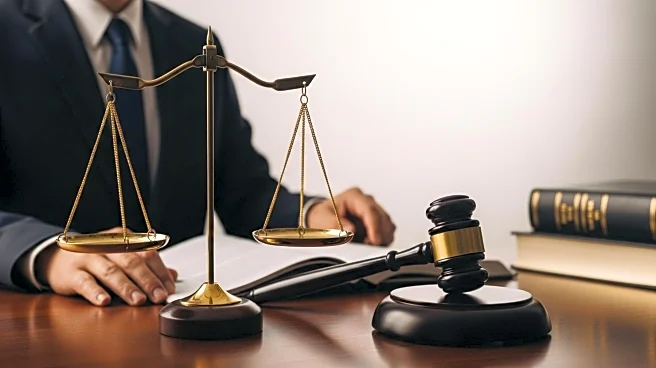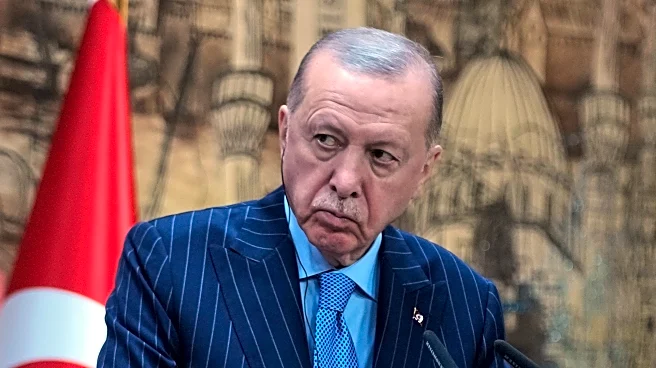What's Happening?
Israel's Attorney General Galia Baharv-Miara has informed National Security Minister Itamar Ben-Gvir that his proposed policy to significantly restrict protests lacks legal standing. The policy document, which aims to prevent protesters from blocking key roads, has not undergone the necessary consultation process with the police commissioner and the Attorney General's Office. Baharv-Miara emphasized that publishing the document without proper consultation would violate agreed principles and exceed Ben-Gvir's authority. Despite this, Ben-Gvir insists the document is binding and has threatened to implement it if no new position is issued by the Attorney General.
Why It's Important?
The conflict between Ben-Gvir and the Attorney General highlights ongoing tensions within the Israeli government regarding civil liberties and the right to protest. The proposed restrictions could significantly impact large anti-government demonstrations, particularly in Tel Aviv, raising concerns about freedom of expression and assembly. The legal challenge underscores the importance of adhering to democratic principles and the rule of law, which are crucial for maintaining public trust and stability. The situation also reflects broader political dynamics in Israel, where debates over security and civil rights continue to shape policy decisions.
What's Next?
The Attorney General's office is expected to review Ben-Gvir's policy document in collaboration with the police commissioner and legal experts. This process may lead to revisions or rejection of the proposed restrictions, depending on legal assessments and public pressure. The outcome could influence future protest regulations and the balance between security measures and civil liberties in Israel. Stakeholders, including civil society groups and political leaders, are likely to engage in discussions and advocacy efforts to ensure that any new policies align with democratic values.










